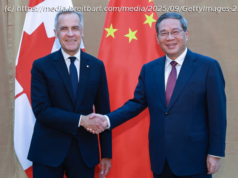 Asia shares gave up their earlier gains after a private Chinese manufacturing survey missed forecasts and China’s central bank surprised markets by raising its short-term lending rates.
Asia shares gave up their earlier gains after a private Chinese manufacturing survey missed forecasts and China’s central bank surprised markets by raising its short-term lending rates.
China’s Shanghai composite fell 0.44 percent after initially opening flat, while the Shenzhen composite was down 0.3 percent. Meanwhile in Hong Kong, the Hang Seng index was down 0.33 percent.
The People’s Bank of China surprised markets by hiking short-term interest rates, also known as reverse repurchase agreements (repos), by ten basis points to 2.35 percent.
“The central bank has abandoned the benchmark deposit rate and borrowing rate as the policy interest rate tool. This, however, does not mean the start of a tightening cycle,” said Iris Pang, senior economist of greater China at Natixis, in a Friday note.
Pang said that liquidity is still ample, but it comes at a higher cost, adding that if this were a tightening cycle, there would be a contraction in the money supply. She explained that the higher rates could be a move to promote deleveraging among companies.
“Since 2008, Beijing has quadrupled its total debt, and we can’t fully quantify shadow banking, corporate and local government debt. We expect this year to see an acceleration of deleveraging for the Chinese economy,” Gavin Parry, managing director of Parry International Trading, told CNBC late January.
China Caixin manufacturing purchasing managers’ index (PMI) for January slowed to 51.0 from December’s 47-month record high of 51.9, and missed a Reuters poll forecast of 51.2. The manufacturing PMI provides an overall view of activity in China’s manufacturing sector, and is a closely watched indicator of economic health.
The week-long holiday was not without controversy, with Chinese billionaire Xiao Jianhua abducted from Hong Kong’s Four Seasons hotel last week by Chinese agents. Xiao had reportedly helped China’s richest families and leaders move money around, the Financial Times reported.
Companies directly or indirectly controlled by the Xiao’s conglomerate Tomorrow Group saw their shares plummet amid uncertainty over his fate on Friday, Reuters said.
Down Under, the ASX 200 closed down 0.42 percent or 23.83 points to close at 5,621.6. The Australian benchmark was weighed by its energy sub-index, which slipped 1.2 percent, and the materials sub-index, which fell 2.2 percent.
Shares of Virgin Australia were down 4.65 percent on Friday. Tigerair Australia, a subsidiary of Virgin Australia Holdings, said would permanently quit flights to Bali, after Indonesian authorities switched to a new operating model, Reuters reported.
Last month, Indonesia had revoked Tigerair Australia’s permission to fly, saying it did not meet charter flight regulations. Qantas Airway stock was also in the red, down 1.52 percent.
Japan’s Nikkei 225 index slipped 0.03 percent after the Bank of Japan December meeting minutes showed that several policymakers said that they should not set a rigid range in trying to achieve its target of guiding its government bond yields to around zero percent.
Sony was surged up 5.19 percent, after it reported its third-quarter earnings on Thursday , which showed sales fell by 7 percent on-year and operating profits declined 54 percent, mostly on the back of a goodwill impairment in the pictures segment.
But Sony’s semiconductor unit exceeded expectations sharply, said Yu Okazaki, research analyst at Nomura, in a note on Thursday, pointing to the volume of sales for the image sensors for mobile devices at 80,000 units per month, up from 73,000 units per month as of July.
Murata Manufacturing shares were up 4.57 percent after the Nikkei Business Daily reported that it was in talks with Samsung Electronics to make batteries for the Galaxy S8 smartphone models.
In South Korea, the Kospi dipped 0.03 percent. Earlier, the Bank of Korea said the country’s seasonally-adjusted current account surplus in December rose to a 6-month high at $8.57 billion.
Shares of Samsung Electronics was off 0.1 percent. The South Korean electronics conglomerate received a warm welcome by President Trump over a possible new U. S. plant for Samsung’s home appliances .
Recent media reports have surfaced transcripts of Trump’s conversations with Mexican President Enrique Pena Nieto, that had the U. S. leader warning he was ready to send U. S. troops to stop “bad hombres down there” unless the Mexican military does more to control them.
Trump’s conversation with Australian Prime Minister Malcolm Turnbull last Saturday was equally worrisome. The Washington Post reported on Wednesday that Trump heavily criticized an Australian-U. S. refugee deal and told Turnbull that among all the conversations he had with political leaders that day, this one was ” the worst call by far. ”
Tensions are also brewing between the Trump administration and Iran, after National Security Adviser Michael Flynn put Iran “on notice” after it conducted a ballistic missile test this week.
And Trump subsequently tweeted that Iran should be more
U. S. major indexes were mixed on Thursday, with the Dow Jones industrial average down 0.03 percent to 19,884.91, S&P 500 up 0.06 percent at 2,280.85 and the Nasdaq slipping 0.11 percent to finish at 5,636.2.
It will be a busy day of economic data for the U. S., with January nonfarm payrolls, December factory orders and the ISM services index for January on tap. A Reuters poll expects 175,000 jobs added in January, with factory orders up 1 percent in December, and January ISM services index unchanged at 55.1.
In currency markets, the greenback fell to its lowest levels overnight since mid-November against a basket of currencies at 99.233, but recovered to trade at 99.916 on Friday. The Australian dollar fetched $0.7643, hitting above $0.76 on Thursday after it reported a record trade surplus in December.
Home
United States
USA — China Chinese shares fall after week-long break, PBOC raises interest rates






